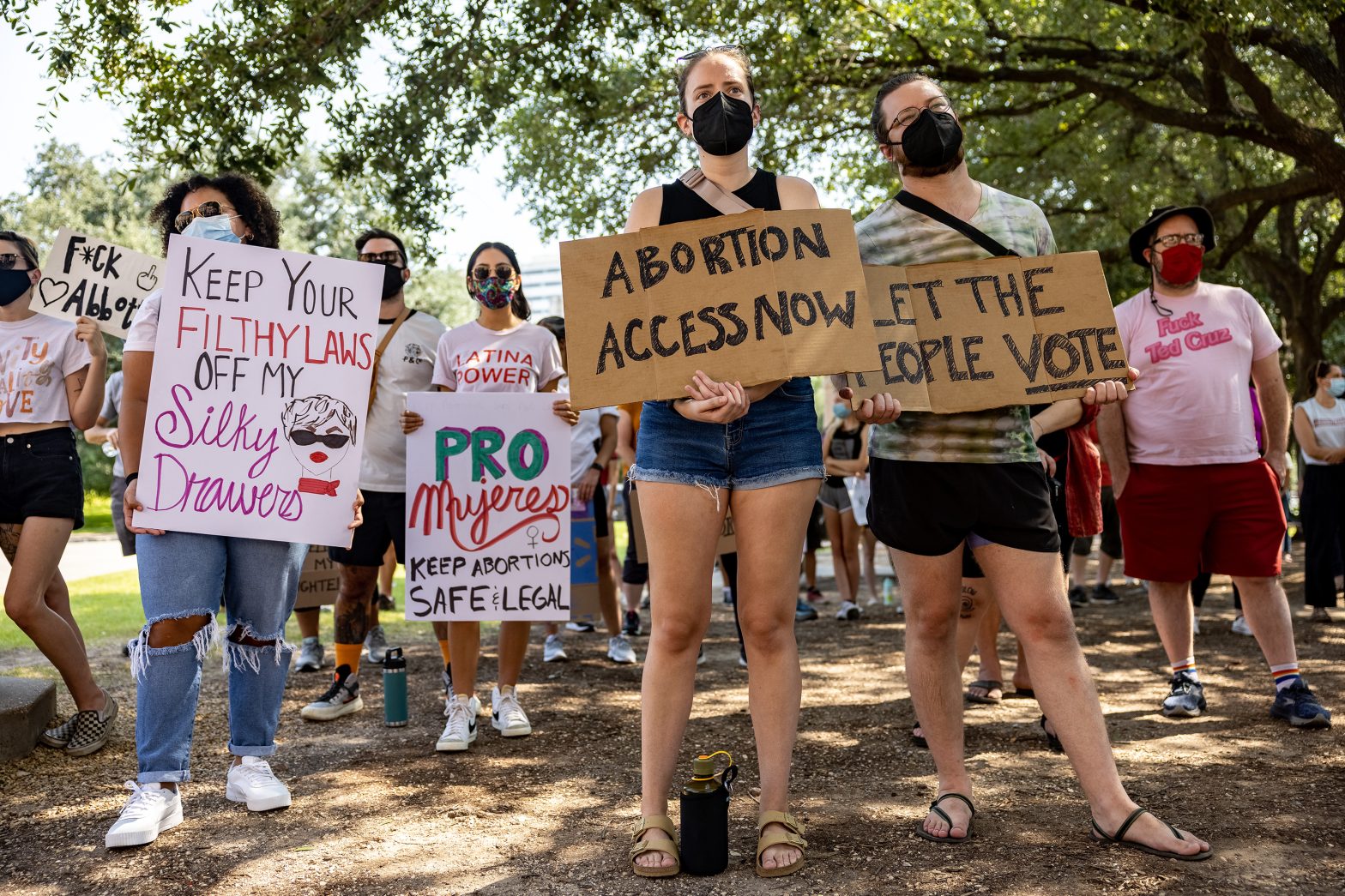The Hypocrisy of the Abortion Access Debate
COMMENTARY

Through more than five hours of testimony, the Congressional hearing on the nation’s ever-decreasing access to abortion showcased a lot of erroneous thinking.
There were twisted interpretations of eugenic’s history, a flimsy albeit adamant concern specific to abortions in the Black community, a Pollyanna belief that a world without legalized abortion would magically result in happily-ever-after married families, and a steady whiplash of “but what about” on other topics including Afghanistan, Haitians at the border, the pandemic and Joe Biden, Joe Biden, Joe Biden.
There’s much to unpack. And self-labeled progressives weren’t always at their best either.
But of all the testimony, the most salient voice of the September 30 hearing came from the least recognizable name.
Loretta Ross, an Associate Professor of the Study of Women and Gender at Smith College, reigned.
She was appropriately biting at times, but not caustic. She kept the conversation on track when others wanted to veer. And she pointedly illustrated that the path to truly helping women and their children wouldn’t begin and end with dismantling Roe v. Wade, or by supporting the new Texas law outlawing abortion as early as six weeks. It’s a law that allows no exceptions for rape or incest.
But most of all, Ross’s views highlighted where the anti-abortion movement collides with the general public, which overwhelmingly supports maintaining the legal right to an abortion, while simultaneously supports some restrictions. A lot of the public may be similar to me, raised in Catholic or conservative households that were adamantly against the procedure. But increasingly they may find themselves disgusted with the lack of empathy for women and the hypocrisy of those that claim to care deeply about unborn children but fail to support measures to aid them throughout their lives.
As speakers in support of the new Texas law began waxing on about their concern for Black babies lost to abortion, a common refrain for decades now, viewers could all but anticipate that Ross would push back.
Ross, a Black woman, addressed what she termed the “white saviors” in the discussion.
“One thing that infuriates me is that they think we are too simplistic as if we are enslaved people who can’t do an analysis of what they are really saying when they talk out of both sides of their mouths,” she said.
Ross was not the billed highlight of the hearing titled “A State of Crisis: Examining the Urgent Need to Protect and Expand Abortion Rights and Access.”
The anticipated stars were House Representatives Cori Bush of Missouri, Washington’s Pramila Jayapal and California’s Barbara Lee. Each used her time to tell their personal experience of an abortion. Their testimonies were riveting, emotional and informative.
Lee had a back-alley abortion in Mexico at 16, as the Supreme Court had yet to decide Roe v. Wade. Back then, women were advised to take quinine pills, or to resort to using a coat hanger, she testified.
Bush was also a teenager, having just graduated high school. She’d been “very lost,” having had a difficult time with bullying and losing her previous straight-A norm. She innocently flirted with a man a few years older at a church trip. He raped her and she became pregnant.
Jayapal had given birth to her first child at 26.5 weeks. Complications followed for both mother and child, including seizures for the baby, repeatedly losing its heartbeat and postpartum depression for Jayapal, along with PTSD so serious that she contemplated suicide. When she became pregnant again, despite a disciplined use of birth control, she was warned that her second child would suffer similar, severe medical problems.
None of the women were guilty of what they were accused, of “glorifying abortion.”
But it was Ross who most effectively went beyond her own story. As a teenager she’d been raped by an older married cousin. She was sent to a home for unwed mothers, decided that she couldn’t give her child up for adoption and ended up co-parenting her son with her rapist, resulting in more trauma.
Listening, you’d come away with the impression that she doesn’t suffer fools; no matter what their political affiliation.
As a co-founder of the Reproductive Justice Movement, Ross identifies broader social contexts that are linked to women’s health aspects that she said are not adequately addressed by either the pro-life or the pro-choice movements..
She schooled on the hypocrisy of claiming to care for unborn children, then failing to show any regard for, even outright hostility toward measures of policy and law that would aid them once they are born.
The pro-life and the pro-choice movements have been guilty historically of leaving women of color out.
“Look at the disparate treatment that our children get once they’re born,” Ross said, speaking for children of color. “Whether they go through a school to prison pipeline or have a property tax-funded school system where, by definition, the poorer neighborhoods have poorer schools.”
She continued.
“The way we won’t address gun violence or lack of health care or environmental problems, lack of clean drinking water. I mean when your put it all together you can’t separate this fight for abortion rights from the fight for voting rights, for civil rights, for environmental justice.”
And with those statements she challenged some of the shallow thinking that had taken up so much of the previous hours of testimony.
©2021 Mary Sanchez. Distributed by Tribune Content Agency, LLC.























